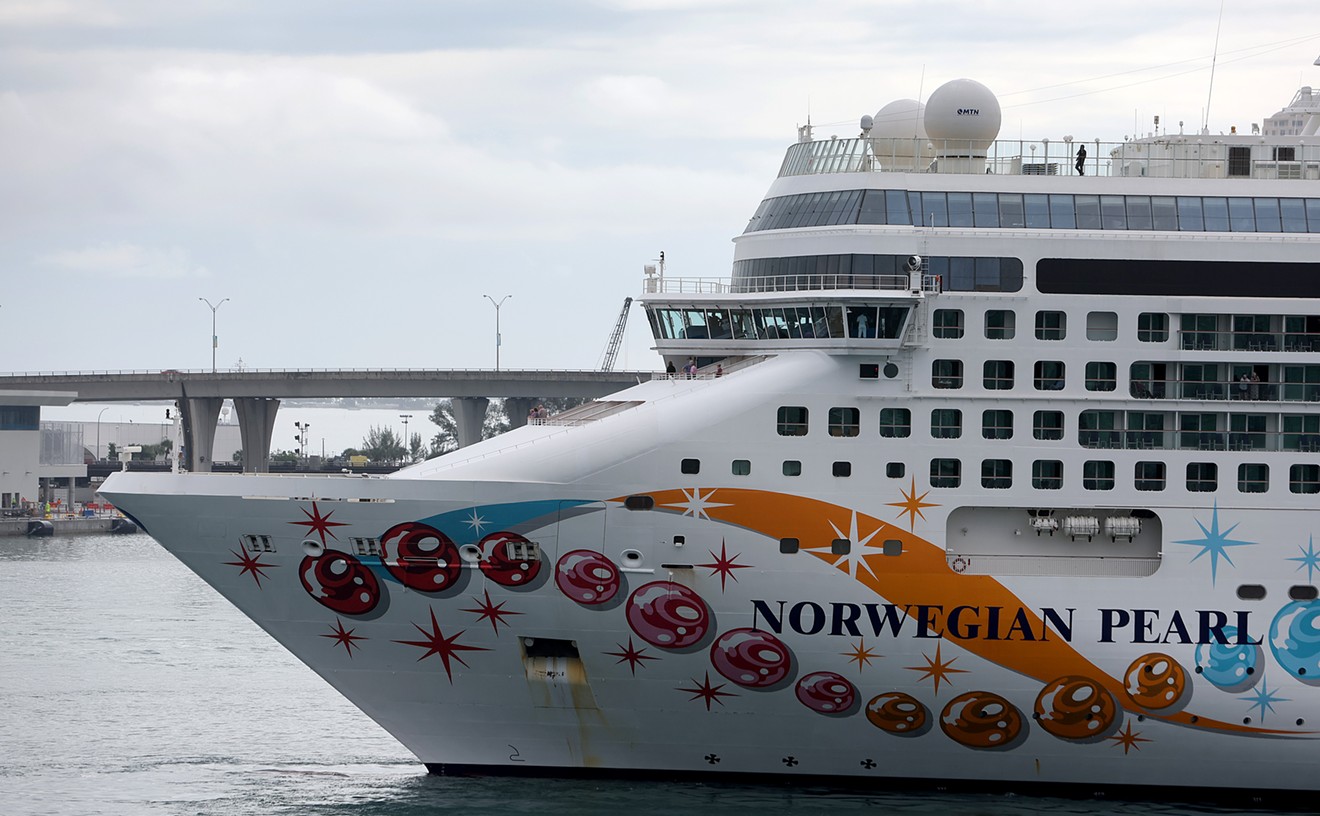A couple of weeks ago he nearly bit off the head of Citizens Investigative Panel vice chairwoman Janet McAliley. The CIP invited Timoney to a meeting in order to answer some questions about police behavior at the FTAA. The chief showed up but said he couldn't stay long. McAliley said that was too bad because ... "Get to the question, would you please?" Timoney snapped back angrily.
Timoney, and many cops I've spoken to, do not understand why there's any continuing controversy. Didn't they prevent mayhem from sweeping through downtown? Didn't the FTAA talks come off without a hitch? Why are so many people complaining about the police, many of whom were attacked? They had batteries, bolts, and rocks thrown at them. I understand. For all those cops who responded appropriately -- thanks.
But we also have reports of police using excessive force, of making bad arrests, and an overall pattern aimed at obstructing free speech. Whatever abuses police were forced to withstand do not justify officers breaking the law. Even people in law enforcement agree. "The vast majority of police officers and supervisors worked very hard to do their job and for the most part did it professionally," says former Miami Police Chief Kenneth Harms. "Were there violations of people's constitutional rights, in my view? Yes, there were, and they should be investigated and people should be held accountable."
Timoney's defensiveness isn't leaving much room for accountability. It is, however, part of his tough Irish cop persona. The public likes this persona because it reminds them of the movies, and reporters swoon because they figure if he's terse and foul-mouthed, he won't bullshit them. Here's a good example: the November 23 Miami Herald article by embedded reporter Oscar Corral, in which he tags along with our grizzled chief. It was an amazing story, and not just because it oozed hero worship: "Like a war general, Timoney walked the front lines all week. He fought off a gust of the acrid smoke by wiping mucus and tears from his sunburned cheeks with a loud 'Argh!' This is Timoney's moment. He lives for this." The story also provided insight into what motivated the man. He called protesters "punks" and "knuckleheads" and claimed many of them came here to "terrorize" and "vandalize." The chief's attitude obviously set the tone for his men.
And then there was this quote, so good it was used as both the lead and the ending of the story. "F--k you. You're bad," Timoney snarls at a protester suspected of throwing rocks.
So the chief feels it's appropriate to swear at suspects? In front of a reporter? And the chief himself didn't even make the arrest? Had the guy kicked Timoney in the nuts, I might have understood. But this was just gratuitous swagger. It also violated his department's own standards.
For more on that, go to Departmental Order 11.6.13.3, which states: "Courtesy toward the public and each other is demanded of all members [of the department] .... They shall serve the city in the discharge of their duties by controlling their tempers and exercising the utmost patience and discretion." Or see Departmental Order 11.6.13.7, "Unkind Remarks," which decrees: "Members and civilian employees shall refrain from sharp retorts when carrying on any conversation." Or try "Conduct Unbecoming an Officer." Take your pick. Officers who violate a departmental order are subject to discipline. Yeah, right.
Lack of police accountability seemed to be an actual strategy at the FTAA. Officers did not have nametags visible. They wore concealing helmets and face shields or gas masks. There was no way a protester could identify a specific cop.
And given the many months of planning, why did the department ignore past crowd-control practices aimed at accountability? During the raucous 1972 national political conventions held in Miami Beach, police developed a simple system for mass arrests. They used a short arrest card, like a traffic ticket, instead of the standard, detailed, eight-by-eleven-inch form. They also took Polaroid photos of defendants with the arresting officer standing next to them. The picture was clipped to the ticket. That ensured the officer could identify the subject in court months later. This system was used in the riots of the Eighties and Nineties as well. Why did Timoney and his planners eschew it? Because it facilitated identification of officers?
Also for all the ordnance shot by police -- pellets, rubber bullets, Tasers, and so-called beanbags -- there was a stunning dearth of "use of force" reports, which are normally required with the discharge of a weapon, lethal or nonlethal. Miami officials told me that during the FTAA the forms were only necessary for arrests, not if a rubber bullet was fired into a crowd. There were 231 FTAA-related arrests. Miami police made 61 of them and filed only seven use-of-force reports. Miami-Dade cops, meanwhile, made 139 arrests, and ... drum roll, please ... filed only one use-of-force report. That's not a typo. Miami is doing its own review. So is the CIP. Good. Somebody needs to explain this to a knucklehead like me. (The remaining 31 arrests were spread out among 38 other agencies.)
"Every officer should be readily identifiable, with a visible nametag," former chief Harms says. "That goes to accountability."
"You've got to give credit to the Miami Police Department for protecting downtown," says former Miami Beach Police Chief Richard Barreto. "And no one ended up in the morgue. But it certainly has to be looked at critically. How can we learn from this? There have to be lessons here. Maybe there are things that should be studied and could be done differently?"
You probably chuckled when I mentioned the chief should be disciplined for swearing. Who cares? And anyway, who would do it? The chief himself?
That's exactly what Miami Beach Police Chief Kenneth Glassman did in 1989, after someone complained about a gay joke he made at a roast for two retiring detectives. Glassman conceded it was not appropriate behavior and suspended himself without pay for two days. Glassman figured he had to set an example for his officers if they were going to face discipline for similar conduct.
And Harms issued himself a reprimand when he was Miami police chief after a minor car accident caused by another driver. Harms faulted himself for failing to drive defensively. "I thought it was important to set the tone within the department," he says.
The Miami Police Department's union, the Fraternal Order of Police, should take note for future reference: The next time Internal Affairs wants to discipline an officer for discourtesy, point to the chief's quote and say, "F--k you."










